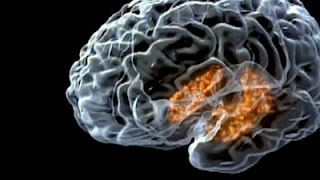Psychology started as people began to scientifically observe and experiment to try to understand human behavior and mental processes. Prior to psychology, philosophers used their imagination and logic to attempt to explain things like thought, emotion and behavior. This chapter is about how psychology began, and the different "schools of thought" that have made up the field from the past to the present.
Bernstein Chapter 1 Pg. 1-26
Reading assignment notes check (10 pts): Due Tues 9/18 (How many pages per day?)
Flashcard check (10 pts): Due Wed 9/19
History of Psych Quiz on Thurs 9/20
Objectives (think about these as you read and review– KNOW THE ANSWERS!!
1. What is psychology?
2. What are the major subfields of psychology and how are they different?
3. How is psychology related to other fields like philosophy and biology?
4. What is empiricism and what is empirical research?
5. Describe the history of psychology by comparing psychophysics, structuralism, Gestalt psychology, psychoanalysis, functionalism, behaviorism and humanism.
6. Compare and contrast the basic assumptions of six major approaches to understanding psychological phenomena: Biological, Evolutionary, Psychodynamic, Behavioral, Cognitive, Humanistic.
7. What is the “eclectic” approach to psychology?
8. How does culture influence behavior and mental processes?
9. What is “diversity” in psychology – how might bias affect the field of psychology?
Bernstein Text Chapter 1 Pp. 1 – 26 –
Read and take Cornell notes based on your reading instructions. Write down how long it takes you to complete the reading and notes so you can know what to expect in terms of studying for future chapters.
Flashcards -
1. Key Term Flashcards: Make Flashcards of the Key Terms that are bolded in the text in addition to cards for the following terms: Gusav Fechner, Wilhelm Wundt, Edward Titchner, Structuralism, Gestalt, Freud, Psychoanalysis, William James, Functionalism, Mary Whiton Calkins, John B. Watson, Behaviorism, Humanism, Social Psychology
If you're ready to have your big brain explode, our friend Hank Green does a great job of laying out the basics of the history of psych too... be ready for some rapid-fire knowledge with this one.
You can watch it directly on Youtube too.
And while this video about the history of psych is not a snappy as Hank's, it covers more people and movements in the history of this most interesting field.
Some really helpful timelines of the history of psychology:
http://www.learner.org/series/discoveringpsychology/history/history_nonflash.html
http://allpsych.com/timeline/#.VgioYGRViko
http://psychology.about.com/od/historyofpsychology/a/psychistory.htm
And... a sample from a comic called Action Philosophers




